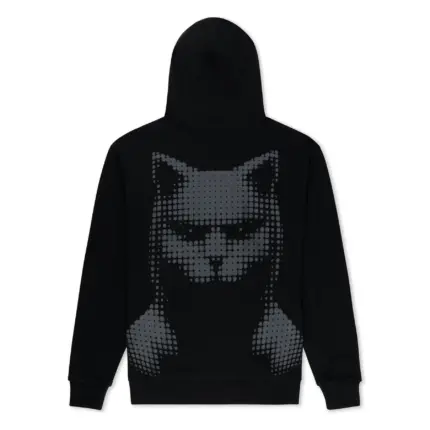Founded in London in 2005, Trapstar is a streetwear brand that has gained significant recognition for its unique blend of urban culture, music influences, and contemporary fashion. Initially, the brand started as a creative project among friends, but it quickly evolved into a full-fledged clothing line that appeals to a diverse audience. Trapstar has become synonymous with bold graphics, distinctive designs, and a lifestyle that resonates with the youth culture, particularly in the realms of music, fashion, and street art.
Origins and Growth
Trapstar was created by designers Mikey, Lee, and Will, who sought to represent the vibrant energy of London’s street culture. Their mission was to produce high-quality clothing that reflects their surroundings and resonates with their peers. The brand’s name itself is a nod to the trap music genre, which originated from the southern United States and has since become a global phenomenon. This connection to music is a cornerstone of Trapstar’s identity, and many collaborations and collections are inspired by artists and musicians.
As the brand began to gain traction, it caught the attention of notable figures in the music industry, including artists such as Drake, Rihanna, and A$AP Rocky. Their endorsements helped propel Trapstar into the mainstream, establishing it as a go-to brand for those looking to blend fashion with music culture.
Design Aesthetic
Trapstar’s design aesthetic is characterized by its edgy graphics, bold logos, and a mix of streetwear and high-fashion elements. The brand often uses a monochromatic color palette, with striking designs that include everything from intricate illustrations to oversized text. The apparel ranges from hoodies and t-shirts to accessories like caps and bags, all featuring the iconic Trapstar logo.
The designs often draw inspiration from various subcultures, including punk, skate, and hip-hop. This eclectic mix allows Trapstar to appeal to a wide audience while maintaining a strong sense of identity. The brand’s limited-edition drops and collaborations with artists and designers also contribute to its exclusivity and desirability among fashion enthusiasts.
Cultural Impact
Trapstar has made a significant cultural impact, particularly within the UK. It has positioned itself as more than just a clothing brand; it embodies a lifestyle and a community. The brand’s roots in music and its collaborations with emerging artists have made it a favorite among those who are passionate about both fashion and the arts.
The brand’s influence extends to the global streetwear scene, where it has set trends and inspired other designers. Trapstar’s emphasis on quality and authenticity resonates with consumers, leading to a loyal following that appreciates the craftsmanship behind each piece.
Collaborations and Partnerships
Collaboration is a key aspect of Trapstar’s strategy. The brand has partnered with various artists, musicians, and designers to create unique collections that reflect their collective vision. Notable collaborations include limited-edition pieces with artists such as Skepta and Wizkid, further solidifying Trapstar’s connection to the music industry.
In addition to music collaborations, Trapstar has also engaged in partnerships with various brands and influencers. These collaborations not only expand Trapstar’s reach but also enhance its reputation as a cutting-edge fashion label.
Sustainability and Future Directions
As the fashion industry increasingly focuses on sustainability, Trapstar has also begun to explore more eco-friendly practices. The brand is committed to producing high-quality garments that stand the test of time, encouraging consumers to invest in lasting pieces rather than fast fashion. By focusing on craftsmanship and responsible production, Trapstar aims to align itself with the growing movement towards sustainable fashion.
Looking ahead, Trapstar continues to innovate and adapt to the ever-changing landscape of streetwear. The brand’s commitment to authenticity, quality, and cultural relevance positions it well for future growth. With a strong foundation in music and urban culture, Trapstar is likely to remain a significant player in the streetwear scene for years to come.
Conclusion
Trapstahttps://trapstar.llc/r is more than just a clothing brand; it is a cultural movement that embodies the spirit of urban fashion and music. With its unique designs, strong connections to the music industry, and commitment to quality, Trapstar has carved out a significant niche in the streetwear landscape. As the brand continues to evolve and inspire, it remains a powerful symbol of contemporary street culture, resonating with a diverse audience around the world
